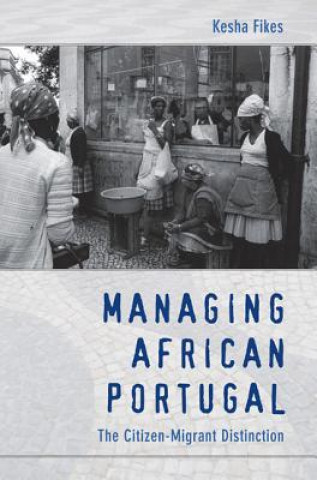
Kézbesítés
Vásárlási tanácsadó





Nem vált be? Semmi gond! Nálunk 30 napon belül visszaküldheti
 Ajándékutalvány
bármilyen értékben
Ajándékutalvány
bármilyen értékben
Ajándékutalvánnyal nem nyúlhat mellé. A megajándékozott az ajándékutalványért bármit választhat kínálatunkból.
Managing African Portugal
 Angol
Angol
 82 b
82 b
30 nap a termék visszaküldésére
Ezt is ajánljuk


In "Managing African Portugal", Kesha D. Fikes shows how Portugal's economic integration into the European Union (EU) in 1996 fundamentally changed ordinary encounters between African migrants and Portuguese citizens. This economic transition is examined through transformations in popular ideologies of difference that occurred in workspaces in Lisbon between the mid-1990s and the early 2000s. Fikes evaluates how unmonitored racial commentary shifts from a manifestation of 'Southern' or 'tropicalist ignorance' to an incriminating signifier that is locally treated as symptomatic of modern chaos. She considers how both antiracism and racism instantiate proof of Portugal's European "conversion" and modernization, respectively. The ethnographic focus is a former undocumented fish market that at one time employed both Portuguese and Cape Verdean women. Both groups eventually sought work in low-wage professions as maids, nannies, or restaurant kitchen help. The visibility of poor Portuguese women as domestics was thought to negate the appearance of Portuguese modernity. By contrast, the association of poor African women with domestic work confirmed it. Fikes argues that we can better understand how Portugal interpreted its accession process by mutually attending to the different directions in which working-poor Portuguese and Cape Verdean women were routed after 1996 and by observing the character of the new work relationships that developed between them thereafter. In "Managing African Portugal", Fikes pushes for a study of migrant phenomena that considers not only how the enactment of citizenship by the citizen manages the migrant, but also how citizens are simultaneously governed through their uptake and inhabitance of new EU citizen roles.
Információ a könyvről
 Angol
Angol
Kategória




 Hogyan vásároljunk
Hogyan vásároljunk





















